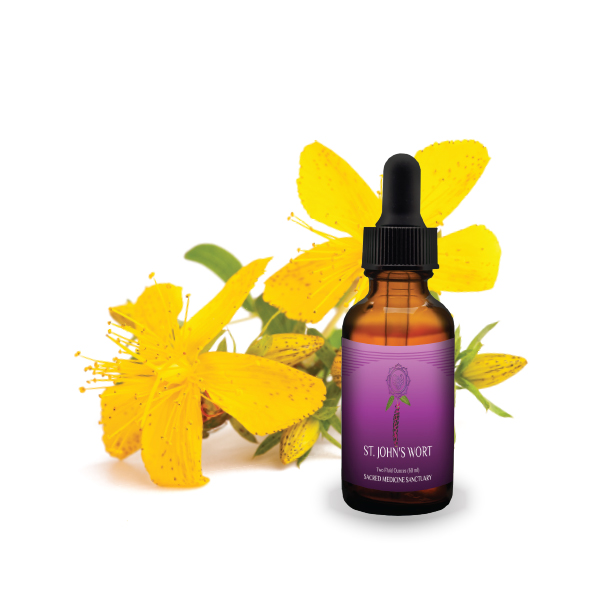Clinically, St. John's wort is prized as a nervine and antidepressant, so much so that in Germany, where St. John's wort is approved for treatment of depression and anxiety, it is prescribed 20 times more often than Prozac.
St. John's wort is sometimes used for incontinence in children. St. John's wort has anti-retroviral properties with no side effects. Some people use St. John's wort to reduce the effects of prescription medications. Externally, it is used as an ointment or poultice for ulcers, tumors, and nerve pain.
1:2 extract of Hypericum perforatum in Organic Alcohol,, Distilled Water, and Vegetable Glycerin.
Alcohol: 55%
Warnings: Not to be used by pregnant women. Be aware of photosensitivity. If using St. John's wort, it may be wise to avoid prolonged exposure to the sun, especially if fair skinned.
Historically, St. John"s wort was used for any and all injuries to the nervous system, especially nerve endings. In addition it was sometimes used for dysentery, worms, and diarrhea; jaundice and hemorrhages; incontinence and complaints involving congestion of the lungs. Research indicates that hyperforin has beneficial effects in treating depression, especially where the patient is anxious, and hypericin is a superb antiviral agent, offering a major hope to persons with herpes and HIV as well as hepatitis B & C. Most American producers of standardized potencies are referring to hypericin whereas clinical research in Austria and Germany strongly suggests that hyperforin may actually be the more important "active ingredient" where anxiety and depression are concerned.


